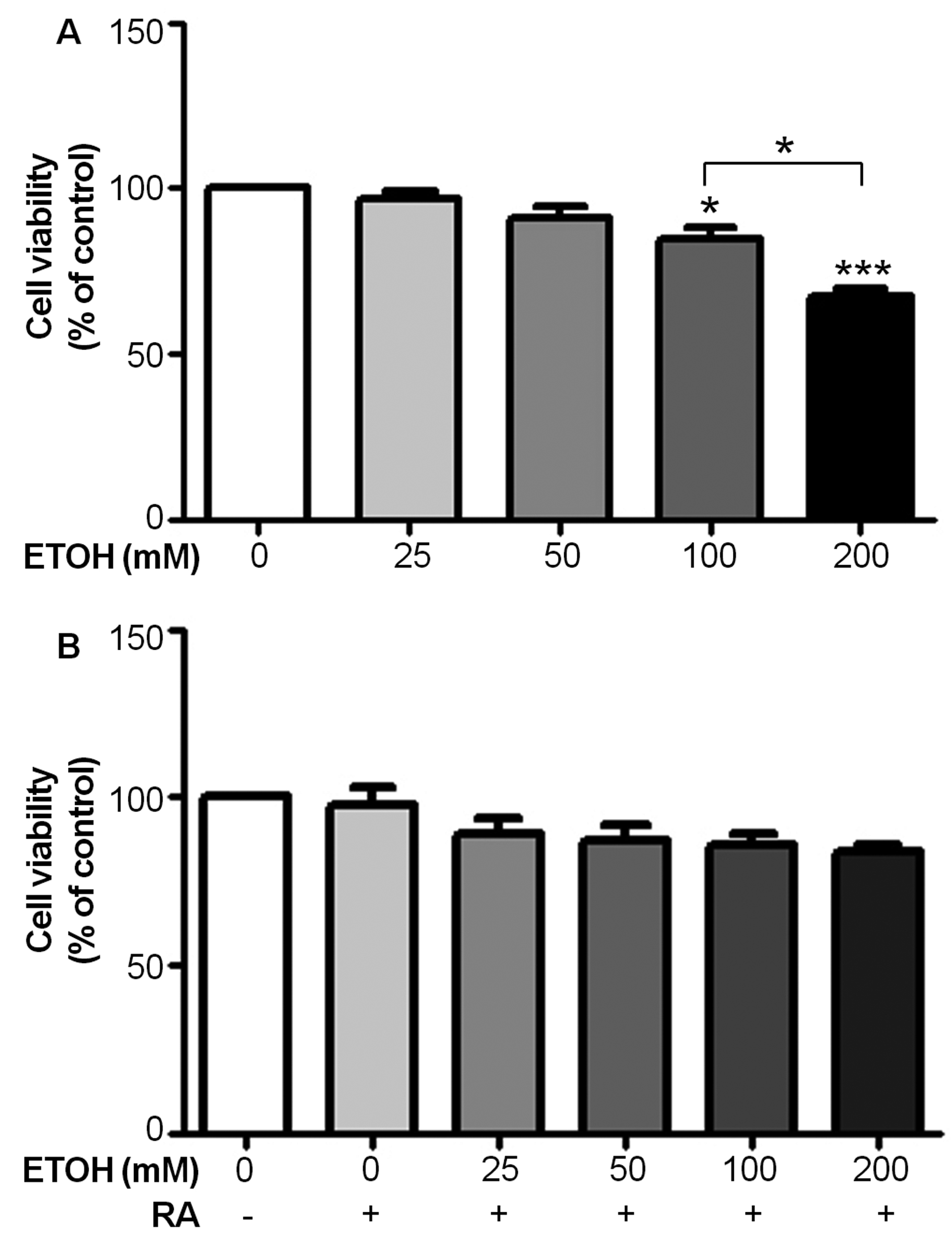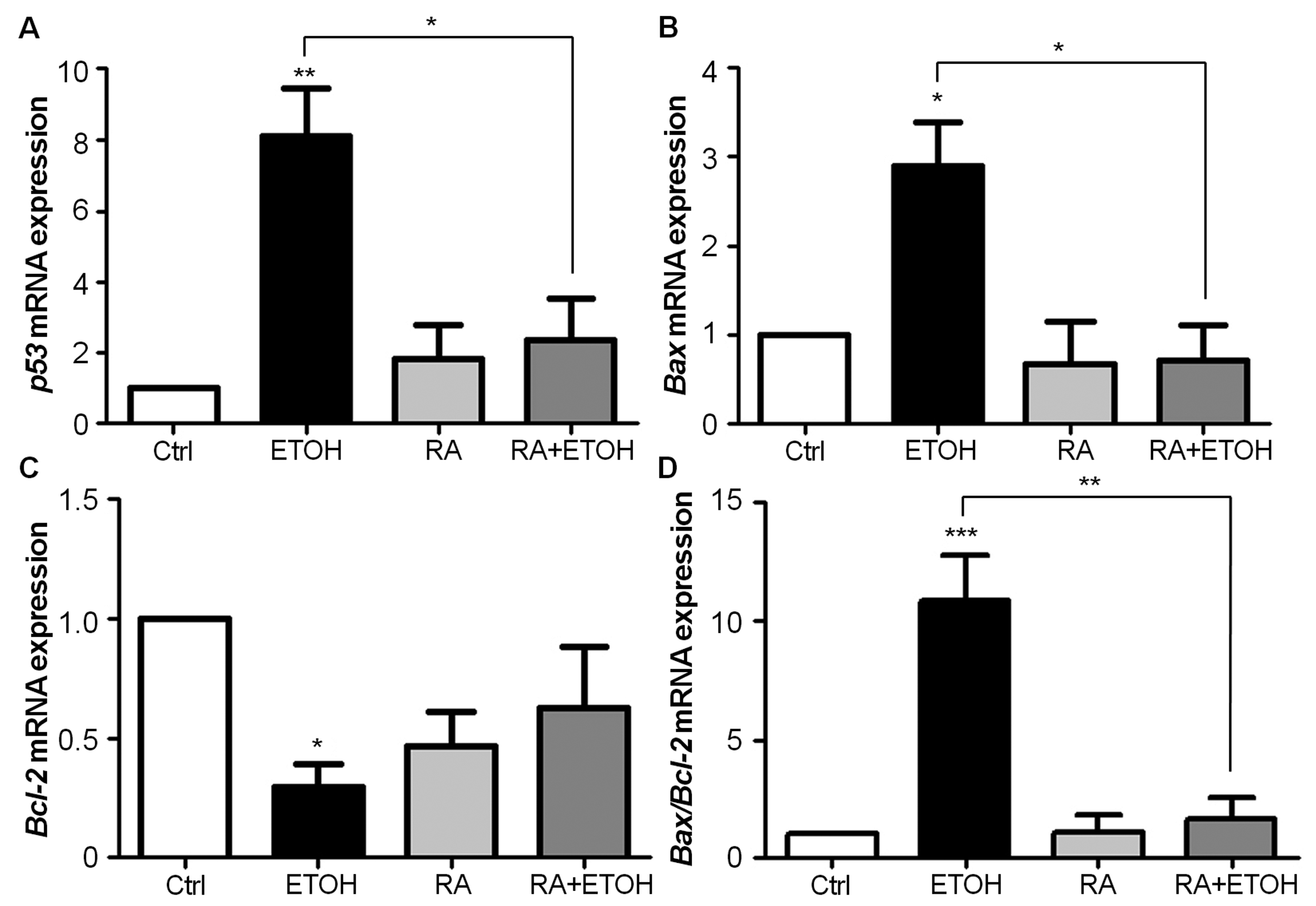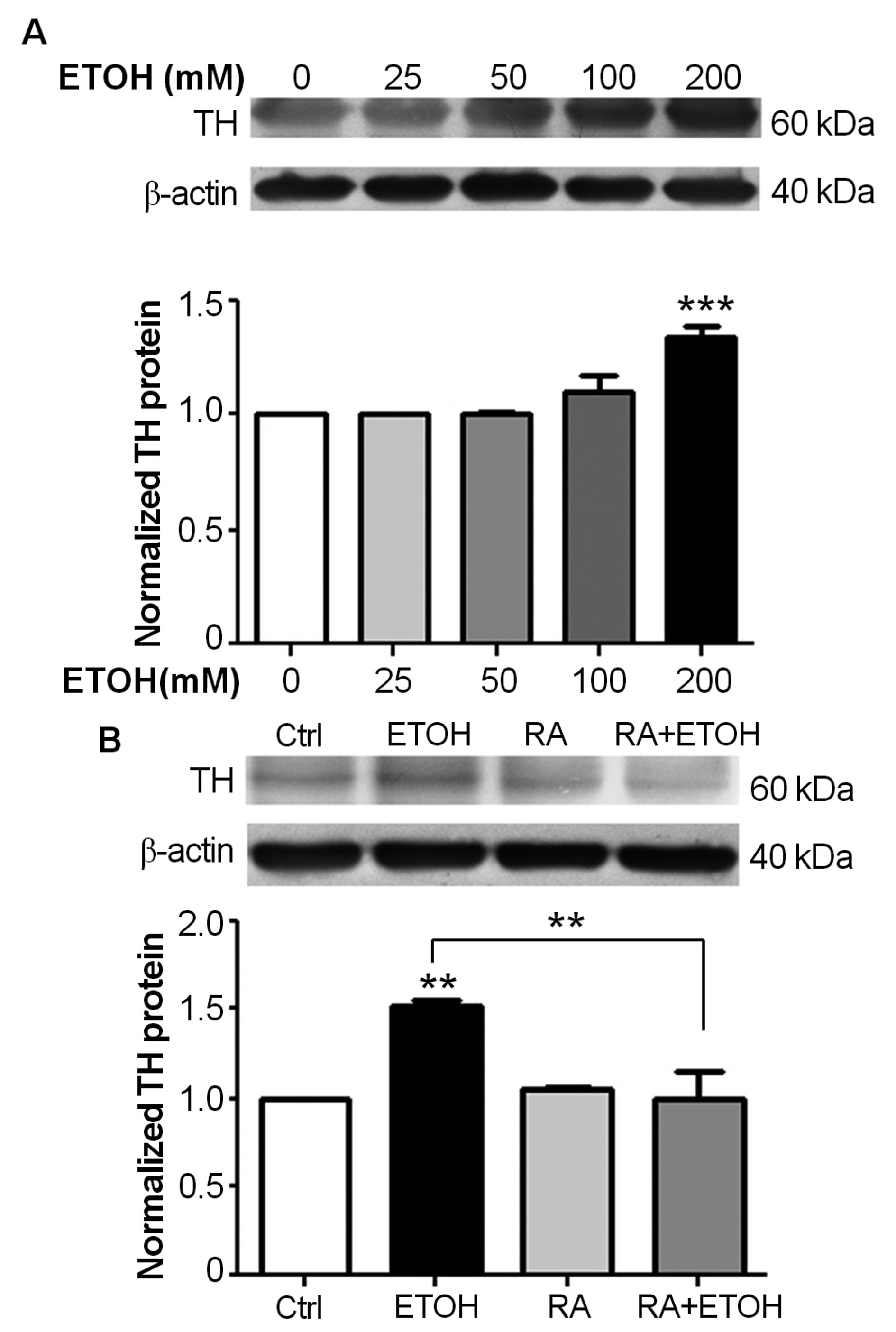
Figure 1. Retinoic acid (RA) reduces ethanol-induced cell death as assessed by an MTT assay. (A) Cell viability of SH-SY5Y cells after exposure to various concentrations of ethanol for 72 hours. Data are expressed as the mean of three replicate ± SEM from three independent experiments (*P < 0.05 and***P < 0.001). (B) Cell viability of SH-SY5Y cells after co-treatment with 10 µM RA and various concentrations of ethanol for 72 hours. Data are expressed as the mean of three replicate ± SEM from three independent experiments.

Figure 2. (A-D) RA reduces p53 and Bax/Bcl-2 mRNA expression in ethanol-treated SH-SY5Y cells. Cells were incubated with 200 mM ethanol, 10 µM RA, and 200 mM ethanol plus 10 µM RA for 24 hours in each experiment. The expression of p53 (A), Bax (B), Bcl-2 (C), and Bax/Bcl-2 ratio (D) was analyzed by quantitative real-time RT-PCR, and relatively compared to their respective untreated control. The expression levels, standardized by the level of β-actin, were shown as folds of expression. Each bar represents the mean of three replicate ± SEM from three independent experiments (*P < 0.05, ** P < 0.01, and *** P < 0.001).

Figure 3. Retinoic acid (RA) reduces tyrosine hydroxylase (TH) protein expression. Total proteins were separated by 12.5% SDS-PAGE and were analyzed by immunoblotting with anti-TH antibody and anti-actin antibody. The expression levels of TH were relatively compared to untreated control, and were shown as folds of expression. Each bar represents the mean of three replicate ± SEM from three independent experiments. (A) Ethanol induces TH protein expression in a dose-dependent manner. Proteins were isolated from SH-SY5Y cells after exposure to 25, 50, 100, and 200 mM ethanol for 72 hours (***P < 0.001). (B) RA reduces TH protein expression in ethanol-treated SH-SY5Y cells. Total proteins were isolated from SH-SY5Y cells after 72 hours exposure to 200 mM ethanol, 10 µM RA, and 200 mM ethanol plus 10 µM RA (**P < 0.01).


